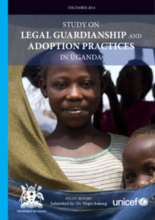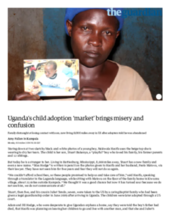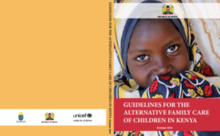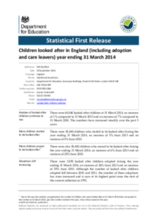Displaying 481 - 490 of 660
This report discusses concerns raised by participants of Thematic Area 4 (Force, Fraud and Coercion) of the International Forum on Intercountry Adoption and Global Surrogacy held in August 2014.
This report discusses concerns raised by participants of Thematic Area 2 (Intercountry Adoption, Countries of Origin, and Biological Families) of the International Forum on Intercountry Adoption and Global Surrogacy held in August 2014.
This report presents the topics and prevalent discussion points of the participants in Thematic Area 1 (HCIA implementation and the best interests of the child) of the International Forum on Intercountry Adoption and Global Surrogacy held at the International Institute of Social Studies in The Hague, the Netherlands, 11-13 August 2014.
This executive summary is the first document in a series of six reports, from the International Institute of Social Studies of Erasmus University (ISS), about the International Forum on Intercountry Adoption and Global Surrogacy, held in August 2014.
This report summarises discussions of participants in Thematic Area 5 (Global Surrogacy Practices) of the International Forum on Intercountry Adoption and Global Surrogacy held in August 2014.
This study on legal guardianship and adoption practices in Uganda was designed to explore and get insight into current care practices.
Family distraught at losing contact with son, now living 8,000 miles away in US after adopters told he was abandoned
The initial goal of the development of these guidelines was to seek to regulate Guardianship and Foster Care of children in Kenya.
This report includes the statistical information regarding looked-after children in the UK for the year 1 April 2013 to 31 March 2014.
Wendy McMahan, Director of Church Engagement for Food for the Hungry, shares a personal anecdote from her own family, illustrating the importance of family care.




